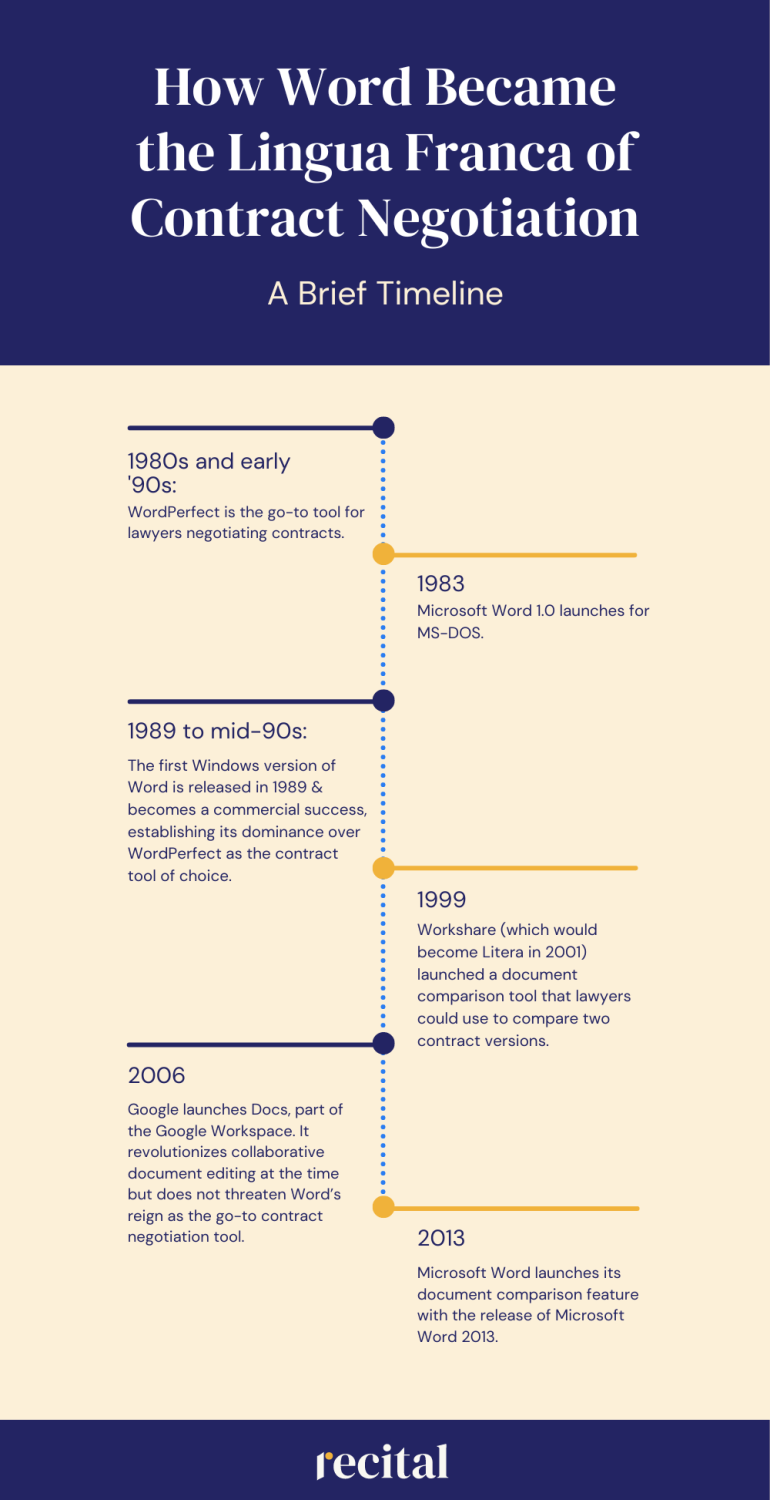Microsoft Word Was the Last Contract Negotiation Innovation 40 Years Ago
This is what a generative AI (Midjourney) thinks Microsoft Word’s 40th birthday would look like.
In October, Microsoft Word turns 40 years old. 40 YEARS!!
The harsh reality is, in all of that time, there's been no innovation in the tools people use to do their contract negotiation work.
I'm not talking about CLMs (contract lifecycle management software) or AI, I'm talking about the tools that are used to draft contracts: to write, review, and edit.
Arguably, Word was the last innovation in contract negotiation tools when it usurped WordPerfect as the go-to tool.
An honorable mention for contract negotiation innovation
Maybe there's an argument that the latest innovation was what is today called Litera Compare, which was previously called Workshare and before that was called DeltaView — which launched in 1999.
Still, that’s 24 years without significant disruption in the toolkit or workflows for contract negotiation.
When Microsoft Word came out, there was a big displacement of WordPerfect, which many lawyers and certainly their legal assistants preferred over Word.
But since their clients were all using Word, they were forced to switch to it.
It’s decades later, and the same thing is still happening. We are speaking with $5 billion companies who started on Google Docs and are still on the Google Office suite — the problem is, Legal still needs to use Word.
I raise this point not only to make people feel old (I’m sure that the looming Word anniversary has done that for some of us) but to remind people that at Recital, we are not looking to do what Microsoft Word did to WordPerfect.
We augment workflows for in-house counsel to help them gain velocity. We do not intend to make them change how they work.
Word’s staying power is not an accident. It’s an industry standard for a reason.
“Microsoft Word.
Microsoft… anything. I know, it seems too antiquated in a world of Google Drive. I love Google Drive too and use it for some things. But when a document needs a lot of formatting and the best Track Changes and Commenting tools, my go-to is still MS Word. More importantly, future lawyers still need to master MS Word. And by master, I mean know it cold.”
—From Why Law School Applicants Should Use MS Word and not Google Docs by Anna Ivey on LinkedIn
And so, innovation in the contract negotiation space has been limited for a long time. Only now are Add-Ins for Word emerging on the scene in an attempt to augment and improve the user experience for legal professionals.
Ending the drought of innovation in contract negotiation technology
Contract negotiators have been “making do” with Word for decades. They’ve become so entrenched in the tool that any amount of change management can be difficult.
I know this firsthand. In 2008 I started Contractually, a web-based contract template tool, which was later sold to Coupa in 2016. While we definitely caused a good deal of disruption, we also came up against the objection that legal professionals couldn’t quit Word.
When our team launched Recital in 2022, it was to help in-house counsel and other contracts professionals without changing how they work. You can still use Microsoft Word, email, and your cloud storage tool of choice.
Recital for Word, our new Word Add-In, is built to work within Word, offering contract negotiators fast access to clause suggestions from their prior contracts.
Sometimes innovation has to take the path of least resistance, adding value to an existing process or workflow without months of training or change management.
Sometimes disruption is not the answer.
That’s the bet we are taking with Recital, and we hope you’ll try it and experience what it’s like to move faster, even with the tools you’ve used for years.



